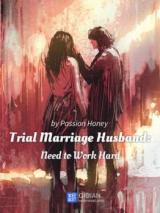[tab]The story began decently enough. It had a mildly intriguing premise, decently written characters, and while there were some over-done generalizations and cheesiness, it was nothing horrible. If only it had stayed that way. As the story progressed, the only element which remained remotely stable was the quality of the writing, everything else gradually changed for the worse.
[tab]The protagonist goes from being a woman who wants to make her own way to a woman who's rather dependant on her husband. The epilogue manages to make this worse with a certain character doing the exact opposite of the protagonist, without any real reason, and ends up hoisting her responsibilities onto her brother, forcing him to change careers. Had either character simply changed goals, it would have been fine — there are many choices in life and who's to decide their worth? But, nope, these changes are simply portrayed as natural.
[tab]Worth changes from being determined by talent and merit, to being determined by influence, wealth, and being Han Chinese. Meanwhile, the portrayal of Westerners goes from being nuanced and mixed (with some racism going on in the modelling industry), to Westerners all being dumb, arrogant racists who hate East Asians above all other groups. I am fully aware that many of the concerns in the Far East are not the same as in the West (and I am willing to overlook the comments it contains at point regarding homosexuals, since it only happened once and briefly at that) but apparently all people who aren't of the Far East, which in the story eventually is equated to Han Chinese, fall under this condemnation, and there's supposedly no racism in Eastern Civilization— that change in perception actually occurs over the course of the story. The leads go from being perfectly willing to work with capable and respectful Westerners to rejecting all personnel who aren't "home-grown," so to speak. Then the story begins to become straight up racist and anti-Western. In particular, there's this line from chapter 1005: "Within the film industry, the Western markets often looked down on actors from Beijing. They even preferred dark skinned people." I neither know nor care which group of "dark skinned people" this line refers to: ignoring the blatant disregard of the element of capability, the comment is incredibly racist. It discriminates against the Western World and any group which tends to have darker skin, irrespective of origin, aside from being terribly warped — those two sentences alone have further problems, but I'll avoid an essay here.
[tab]Reporters and paparazzi show a similar but less glaring pattern, going from a nuanced group to uniform jerks. And similar changes effect essentially every group appearing in the work. Additionally, the protagonist is also described as being extremely faithful to her friends, yet several of her closest friends fade into oblivion and are eventually replaced. There are even sub-plots which are left unresolved due to this.
[tab]Worse yet, none of these changes are plot or theme-related. The story's entire set of themes and messages just inexplicably change for the worse.
[tab]I kept reading in the hopes that the author would revert to the stance shown at the beginning. Obviously, I was not gratified.





